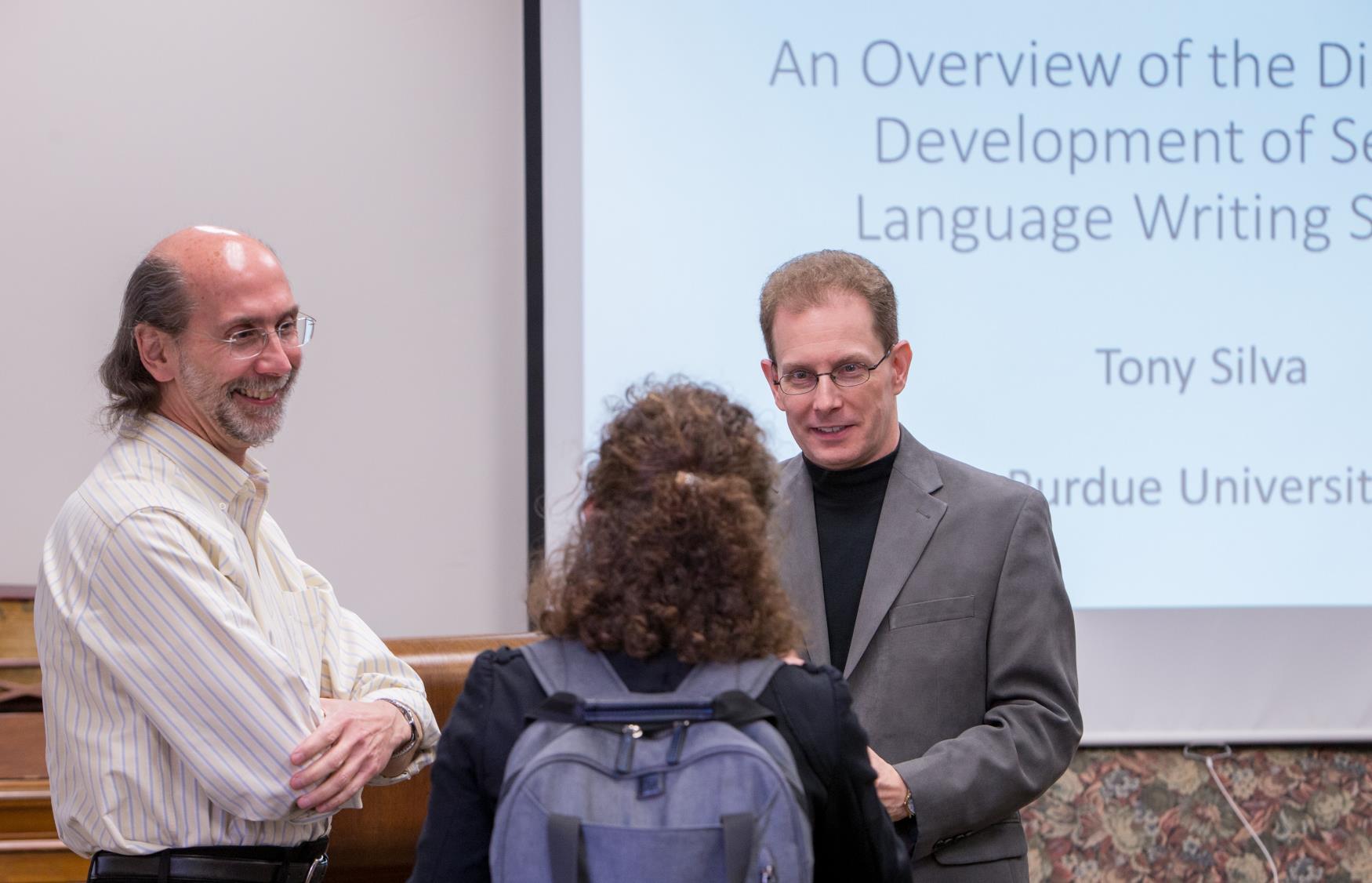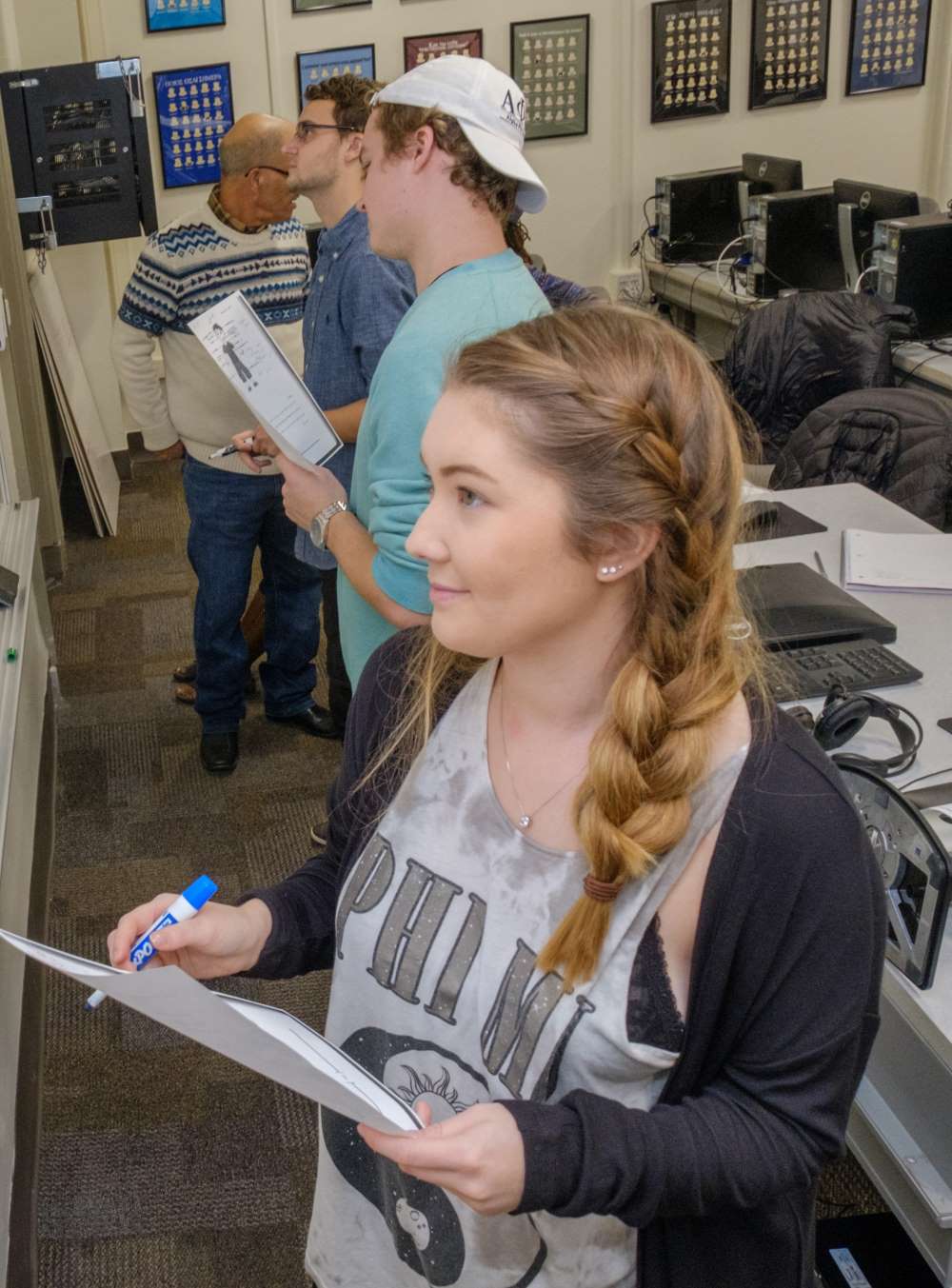Three tracks of specialization are offered.
- Applied Linguistics
- Foreign Languages and Linguistics
- Sociocultural Linguistics

Equipped with excellent analytical skills, graduates in Linguistics enter careers that require in-depth understanding of how language works, and how it can best be utilized. Linguists pursue many careers and are needed in a broad range of professional areas, including software engineering and Artificial Intelligence, interpretation and translation, data analytics, technical writing, law, teaching English as a second language, bilingual and foreign language teaching, speech-language therapy, advertising, and international diplomacy.
Linguistics is the scientific study of language from its origins to how people use it today in various communication contexts. Linguists investigate the properties of language in all of its forms (spoken, written, signed, programmed), and describe how language is used wherever, whenever, and however it is practiced.

This certificate will prepare you for jobs in technology and experience design.
New, Fall 2025
Learn MoreStudying linguistics has allowed me to connect with the world around me in a unique way. I get to see the many facets of our most fundamental tool—language—in action. So many applications like computational linguistics and foreign language learning are an integral part of our everyday lives even if we don’t realize they’re there!
Jazlyn Simon '24
10 years out or less, graduates indicate job titles such as Assistant Language Teacher, Associate Analyst, Experience Designer, Global Data Analyst, Human Resources Generalist, Instructional Technologist, Linguistic Analyst, Marketing Director, Software Engineer, Stewardship Operations Specialist, Technical Writer, and Young Adult Librarian.
Employers include Cincinnati Children's Hospital, Cintas, Duolingo, Elsevier, Epic, HH Global, Indiana University, JP Morgan Chase & Co, OhioHealth, Sinclair Community College, UPMC Health Plan, and Workhuman.
Many students go on to earn graduate degrees in Linguistics or related fields, including French, Germanic Languages, Law, Library Science, Security Informatics, Sociology, and TESOL.
Linguistics majors study various aspects of the formal structure of language, including:
The Linguistics program emphasizes interdisciplinary study and analysis, offering courses in formal linguistics, sociolinguistics, and computational linguistics. A major in Linguistics can easily be combined with majors or minors such as Anthropology, Computer Science, English, Foreign Languages, Mathematics, Philosophy, Psychology, Sociology, and Speech Pathology, among others.

Miami University's Linguistics program was the perfect place to tap into my curiosity and shape my perspective on language, culture, and technology. During my capstone project, I discovered a passion for Voice User Interfaces and Artificial Intelligence. This paved the way for my career as a Conversational User Experience Designer, where I focus on creating natural and intuitive conversations with machines.
Oliver Greive ‘19
The Linguistics Award recognizes outstanding student work completed in a Linguistics course. The award is given every spring. Recently recognized project titles include:
“A Linguistic Approach to the Reading Wars”
“Exploring Linguistics Challenges in Autistic Individuals”
“NBA 2K: The ‘Sport’ of Speech Acts in eSports”